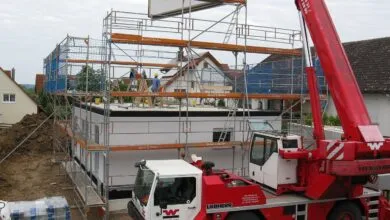FCT Farmland Allocation to Transform Abuja Real Estate

The FCT farmland allocation plan announced by Minister Nyesom Wike is set to unlock huge opportunities for agriculture and rural real estate in Abuja’s satellite towns.
On Monday, June 23, 2025, the Minister of the Federal Capital Territory (FCT), Mr. Nyesom Wike, promised to allocate farmlands to genuine farmers in rural communities. Speaking at the inauguration of a new road connecting A2 Junction (Abuja-Lokoja Expressway) to Pai community in Kwali Area Council, Wike stressed that only real farmers, not speculators — will benefit from this initiative to boost agriculture and fight food insecurity.
“Look at the vast area of land, and we are talking about food insecurity,” Wike said. “With these vast lands, those of you who want to be real farmers will get farmlands to cultivate. This will help us come out of food insecurity, which the federal government is trying to solve.”
The newly inaugurated rural road is one of 17 projects marking President Bola Tinubu’s second year in office.
Why the FCT Farmland Allocation Matters
Farmland is one of the most underestimated assets in Nigeria’s property market. The FCT farmland allocation plan highlights how unlocking rural farmland can support real farmers, boost food production, and strengthen local economies.
When rural lands become accessible and compensation is paid fairly, farmers gain confidence to invest, cultivate, and expand. For real estate watchers, this signals that rural areas with strong agricultural policies can see steady growth and improved living standards.
What the FCT Farmland Allocation Means for Real Estate Investors
The impact of farmland allocation goes beyond crops, it shapes entire communities. Here’s why it matters:
- Land Value Will Rise:
When government roads open up remote areas, farmland values tend to increase. Better access means land can be farmed, leased, or sold at fairer prices. Investors who hold agricultural plots may see appreciation as these areas develop. - New Opportunities for Community Development:
Farms attract workers, storage facilities, markets, and rural housing. Over time, these communities grow into mini economic hubs. For real estate investors, this means new opportunities to develop supporting infrastructure like small housing estates, local shops, and agro-processing centers. - Sustainable Investment:
Agricultural land isn’t just an asset, it’s a lifeline for food security and local jobs. Investing in farmland supports sustainable development and long-term national goals. Investors can also partner with genuine farmers to build profitable agri-business ventures.
Conclusion
The FCT farmland allocation plan is a clear signal that rural land and agricultural development are crucial parts of Nigeria’s real estate landscape. For investors, it’s time to look beyond city plots and consider how well-placed farmland can generate value, income, and impact for years to come.
Stay tuned to EOREblog for more real estate news and insights that help you spot opportunities, and follow us on our social media pages on Wittyville properties.




